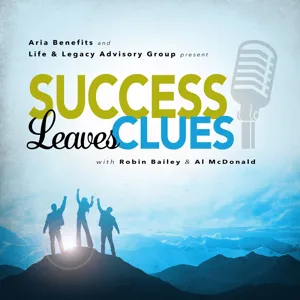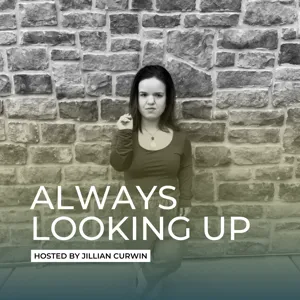Podcast Summary
Demystifying Disability: A Shared Human Experience: Embrace disability as a part of human diversity, respect individual experiences, and promote inclusivity to create a more accessible world
Disability is a part of the human experience, as common as having different toppings on a pizza. It's important to demystify disability and make the world more accessible and inclusive for everyone. Disability is a diverse and complex experience, and it's crucial to avoid taboo and discomfort when interacting with disabled individuals. Emily Ladau, a disability rights activist, encourages us to view disability as just another aspect of our unique identities. By understanding and respecting the diverse experiences of people with disabilities, we can create a more inclusive world. So next time you encounter someone with a disability, remember that you're sharing a common humanity, and treat them with the same respect and dignity you would want for yourself. Additionally, being an ally means educating yourself and speaking up against ableism. Support for this message comes from Equinix, the world's digital infrastructure company, empowering companies to bring their digital dreams to life. And from Whole Foods Market, offering wallet-friendly options for hosting inclusive celebrations.
Understanding Disability History and Language: Recognizing the importance of language and disability history can help challenge ableism and promote inclusion for people with disabilities. Use respectful, identity-first language and acknowledge the diversity of experiences within the disability community.
Disability is a natural part of the human experience, and it's essential to recognize the diversity and complexity of disability experiences. Unfortunately, disability has been stigmatized and misunderstood throughout history, leading to a lack of representation and inclusion. The history of disability rights begins in the early 20th century, marked by eugenics beliefs that disabled people should not exist. However, the disability rights movement emerged as a civil rights movement, emphasizing the importance of language in shaping perceptions and promoting inclusion. The way we talk about disability matters because it influences how we think and perceive people with disabilities. Language can be empowering or disempowering, and it's crucial to use inclusive and respectful terms. For instance, people prefer identity-first language, such as "person with a disability," rather than person-first language, such as "disabled person." It's essential to acknowledge the diversity of experiences within the disability community and avoid making assumptions based on outdated stereotypes. Furthermore, it's important to recognize that disability history is a part of human history, and understanding it can help us create a more inclusive and equitable society. By learning about the experiences of people with disabilities throughout history, we can challenge ableism and promote full participation and equal opportunities for all.
Using respectful language for people with disabilities: Use 'disability' directly, respect person-first and identity-first language, and avoid stigmatizing terms. Aim for inclusive and respectful language to challenge ableism.
Language plays a crucial role in shaping perceptions and attitudes towards people with disabilities. Instead of using terms like "special needs," "differently abled," or "handicapable," which can be seen as euphemistic or dismissive, it's recommended to use the term "disability" directly. This helps normalize disability as part of the human experience. There are two modes of thinking when it comes to language and disability: person-first language and identity-first language. Person-first language emphasizes the person before the disability, while identity-first language recognizes disability as part of someone's identity. Both approaches are valid, and it's essential to respect individuals' preferences. Additionally, avoiding stigmatizing language like "crazy," "insane," or "mentally challenged" is crucial. Instead, use precise and respectful terms like "mental illness," "wheelchair user," and "intellectually disabled." Ableism, a systemic discrimination against people with disabilities, is a broader concept that encompasses these issues. It's important to be aware of ableism and strive for inclusive and respectful language.
Understanding Ableism: Interpersonal and Systemic: Starting out as an ally, remember everyone has a role, ask who's included, lead conversations, learn, and take action continuously.
Ableism is a complex issue that exists in both interpersonal and systemic ways, devaluing people with disabilities. Interpersonal ableism can manifest through rude comments or unwarranted assistance, while systemic ableism can be seen in inaccessible ways, such as an inaccessible transportation system. For someone starting out as an ally, it's important to remember that everyone has a role to play, regardless of their own identities. Being an ally involves asking who's included, leading conversations, and continuously learning and taking action. Allyship is not a one-time act, but a constant process. And finally, it's important to remember that using the words "disabled" and "disability" is not derogatory, but a part of our shared human experience.
Engaging with communities about person-first vs identity-first language: Consider specific communities, ask individuals for preferences, ongoing process of learning and unlearning, include marginalized voices, consistent effort and dedication required for allyship.
When engaging with communities regarding person-first or identity-first language, it's essential to consider the specific community and, whenever possible, ask the individuals involved for their preferences. Our second key takeaway is that disability allyship is an ongoing process of learning and unlearning about ableist ideals, questioning our privileges, and ensuring that marginalized voices are included in discussions. Lastly, remember that being an ally requires consistent effort and dedication, not just occasional inclusive actions. For more practical tips on communication and relationships, listen to LIFE KIT's episodes on better listening and setting boundaries. And if you have a random tip or episode idea, please share it with us. This episode was produced by Sylvie Douglas, with contributions from Meghan Keane, Beth Donovan, Claire Marie Schneider, Janet Woojeong Lee, Andi Tagle, Audrey Nguyen, and Beck Harlan. Don't forget to check out Choiceology, the podcast by NPR sponsor Katie Milkman, for more insights into human decision-making. And remember, a good night's sleep is crucial for overall well-being. Consider investing in Lisa's natural hybrid mattress, which is made from natural materials and supports sustainable practices. Visit lisa.com to learn more. Lastly, the loss of local newspapers and journalists has significant implications for our democracy. Support NPR by donating at donate.npr.org.






